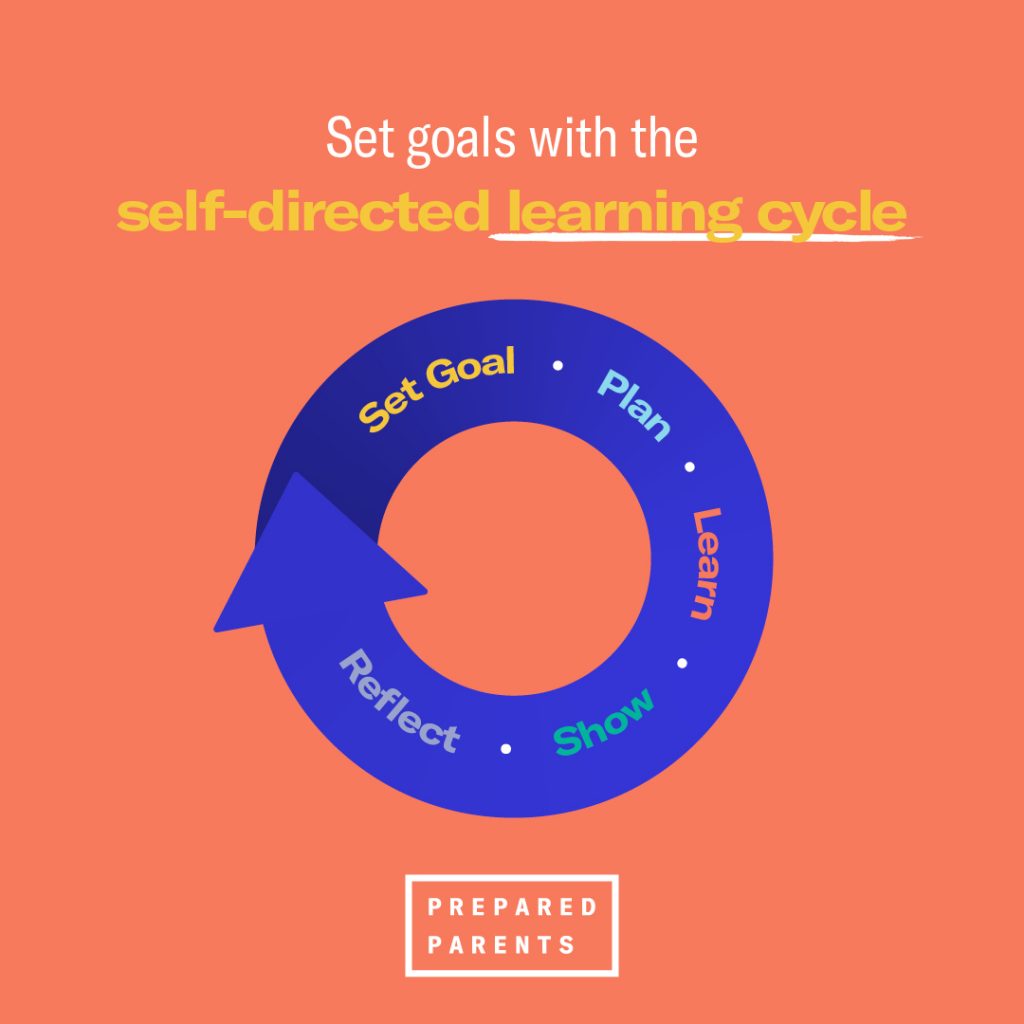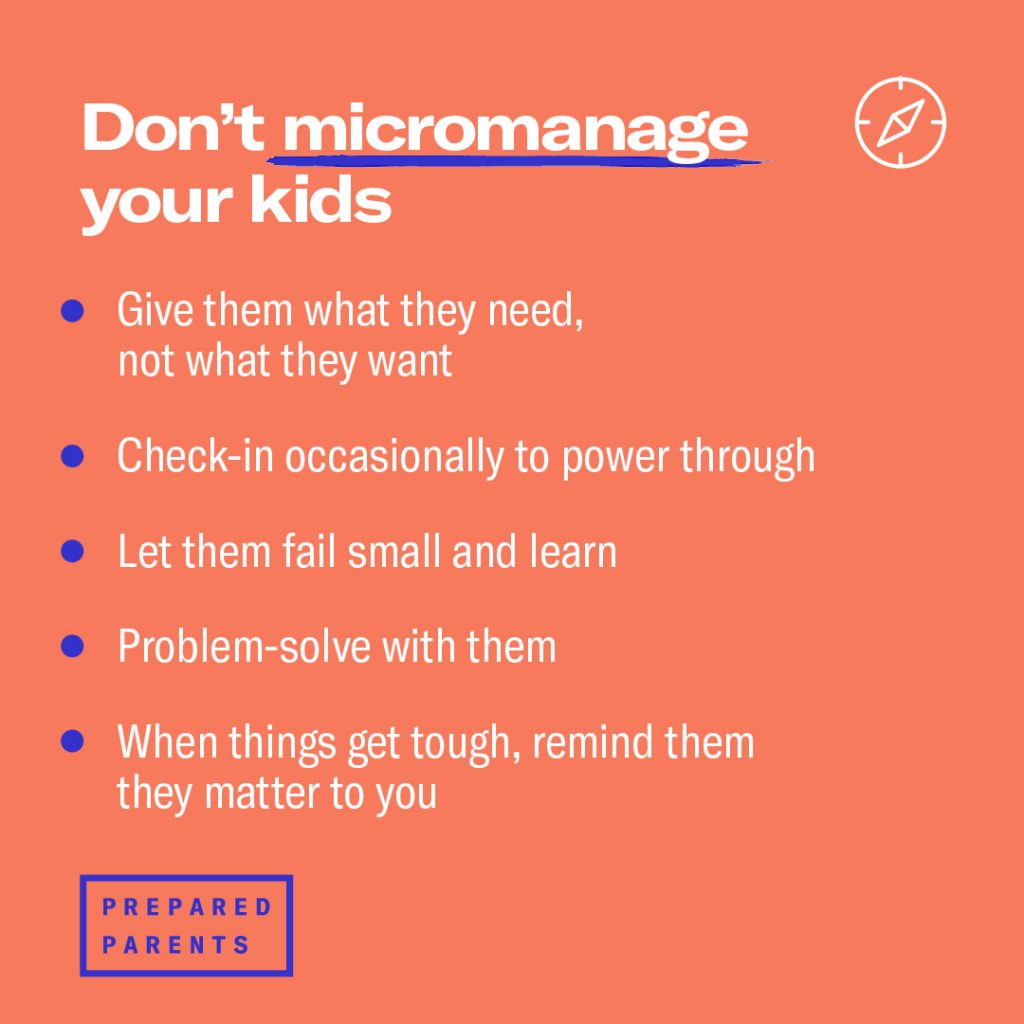You feel it. Every time your kid has a long list of assignments, a storm cloud of dread descends. How are they going to get this done unless you make sure it happens?

When our kids struggle, for example taking on the responsibility of getting their school work done, often as parents our reaction is to step in. This is especially true when it comes to school. How do we let our kids fail, not pass in that assignment, or get a bad grade, when it feels like everything is dependent on it?
This may feel uncomfortable, but letting a kid take control gives them the opportunity to develop the skill of self-direction, one of the most important skills a kid can build: setting a goal, making a plan, carrying out the plan, showing their work and reflecting on the effectiveness of the plan. It’s a good thing any kid can learn.
According to research, the impact on kids of a parent who is too controlling and micromanages results in ineffective coping skills, stress, depression, and a lower level of satisfaction with life. Self-direction is one of the top three habits (along with Curiosity and Purpose) named by Dr. Brooke Stafford-Brizard that set kids up for success in school, and in life. It is an essential skill that helps people of all ages pursue interests, develop new skills, find purpose, and contribute to the world around them.
It’s hard to let go and trust our kids to get their work done. But “hard” does not mean impossible!

Acquiring skills is lumpy. There will be lots of bumps and missteps. Don’t get discouraged if they fail; that’s part of the deal. We have a complicated relationship with failure, but it’s an opportunity for kids to learn perseverance. Kids who learn to cope with failure are willing to risk taking on bigger challenges without fear. Our role as parents is to let them take control as you support them with the right tools.
Consider the following strategies as you give your kid more control:
Give your kid what they need, not what they ask for
Provide the tools they need to get their work done, tools like the self-directed learning cycle. This helps your kid set a goal, make a plan, do the work, and finally reflect on the process they used. Without a tool like this, a kid may just say, “I can’t do it. I’ll just fail the assignment; but, if you don’t want me to fail, just help me do it.”
The self-directed learning cycle shifts the conversation from an argument between parent and kid to a discussion of the process chosen to accomplish the task. A change of process may be all that’s needed to get the job done.
Check-in occasionally, and encourage your kid to power through with power behaviors
Let your kid know you’re there when they need you, but resist the impulse to take over. You can use the five power behaviors—and their language—to help your kids over a hurdle:
- shift strategy
- seek challenges
- persist
- respond to setbacks, and
- ask for appropriate help.
Eliminate the fear of failure by letting your kid fail small, and learn from it
Learning is a process, and there are many tough days when we need to be reminded. Failure is productive when the person who fails actually learns something and is then motivated to try again.
“When nothing seems to help, I go and look at a stonecutter hammering away at his rock perhaps a hundred times without as much as a crack showing in it. Yet at the hundred and first blow, it will split in two, and I know it was not that blow that did it, but all that had gone before.”
-Jacob Riis
If they’re asking for help, talk through problem-solving strategies
Ask these questions:
- What was most challenging?
- What are some ways you could have handled this differently?
- What did you learn this time that you can use for the next time?
Offer some motivation as needed
Acknowledge their effort and their willingness to follow through, even when it gets tough.
And when it does get tough, remind them, they’re what matters
Letting your kid know they matter develops a strong bond, known as secure attachment, which leads to success not only in school, but in life. Using this framework of 20 specific actions you can take as a parent, you’ll guide your kid through hard situations, and make them feel they matter at the same time. These actions reinforce each other and push your kid to get better.

